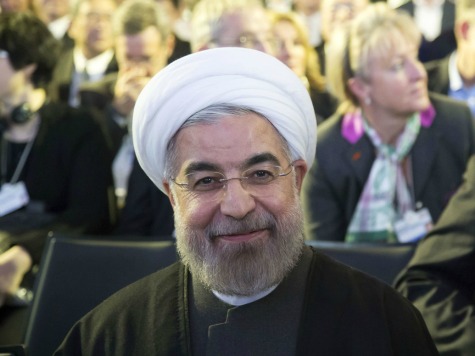President Obama once defended the current sanctions on Iran by insisting that they had “enormous bite” in containing the finances helping to sustain the Iranian nuclear program. Secretary of State John Kerry continued the Administration’s talking points regarding the strength of current sanctions, saying “existing sanctions will continue to bite, and to bite hard.”
A bipartisan Iran sanctions bill was recently introduced in the Senate with an overwhelming majority of support. The Menendez-Kirk bill, or “Nuclear Weapon Free Iran Act,” was specifically created to shore up potential weaknesses in the current sanctions. In President Obama’s most recent State of the Union address, he threatened to veto the bill should it come to his desk. Afterwards, Senate Majority Leader Harry Reid, a close ally of the White House, stalled long enough to the point where voting on the bill has become indefinitely postponed.
Recent evidence is surfacing suggesting that the current sanctions on Iran are losing their “bite” at a rapid pace. China and Iran are set to reach a trade agreement that would lay out a plan targeting 200 billion dollars in trade for the next ten years. Furthermore, an Iranian official noted that China is set to become a power-player in the housing market in Iran, with the goal of constructing 36 million housing units in Iran by 2015. The impact of the current US sanctions has not stopped a 100-member Chinese government delegation of investors currently in Iran to explore further economic cooperation.
United States’ ally South Korea also does not appear to be phased by the current sanctions. According to Iranian media, the South Korean government is set to send trade representatives to Tehran in order to explore further trade possibilities.
The Iranian Parliament speaker, Ali Larijani, is also set to embark on a 4-day trip to South Africa and Congo to enhance economic cooperation between Iran and the African states.
Iran also reached an agreement with its neighbor, Iraq, to export natural gas through a 270-kilometer pipeline. Iranian media estimates that annual revenue received through its gas output can reach 3.7 billion dollars a year.
Iranian Foreign Minister Zarif was in Qatar to ink a freshly constructed trade agreement with Qatari Foreign Minister Khalid bin Mohammed al-Attiyeh. The trade agreement established expansive cooperation between the two states’ private sectors, in addition to creating a joint committee to further economic cooperation.
Yesterday, Iran’s Ambassador to Russia, Mehdi Sanaei, summarized the current sanctions as “overrated,” encouraging Russia to increase trade with Iran without having to worry about any potential repercussions.
Follow Jordan Schachtel On Twitter: @JordanSchachtel

COMMENTS
Please let us know if you're having issues with commenting.